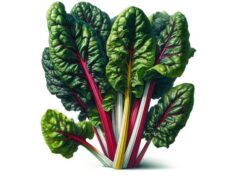
Grapes: History and Health Importance
Grapes, one of the world’s oldest and most widely cultivated fruits, have a long history spanning thousands of years. These small, sweet berries, which originated in the Near East, have long been a staple in various cultures and civilizations, celebrated not only for their delicious taste but also for their nutritional value. Grapes are versatile fruits that come in a variety of colors, including green, red, and purple, with each offering distinct flavors and nutritional profiles.
Historically, grapes were revered for their medicinal properties. They were used therapeutically by the ancient Egyptians and Greeks, and they continue to play an important role in traditional medicine today. Grapes are now known for a variety of health benefits, ranging from heart health to immune function. Among their many benefits, grapes are especially good for your eyes. Grapes are high in vitamins, antioxidants, and other bioactive compounds, which help protect and maintain vision, thereby preventing age-related eye conditions. As we go deeper, we’ll look at grapes’ full nutritional profile and how these small but powerful fruits can help you have better vision.
Nutrition Facts of Grapes
Grapes are nutrient-dense fruits high in essential vitamins, minerals, and antioxidants, all of which benefit overall health and, in particular, eye health. A standard serving size of grapes (about 151 grams or one cup) contains:
- Calories: 104
Protein: 1.1 g, fat: 0.2 g, carbohydrates: 27.3 g, fiber: 1.4 g, and sugars: 23.4 g.
Vitamins and Minerals
- Vitamin C: One cup of grapes contains 27% of the daily recommended intake of vitamin C. Vitamin C is a powerful antioxidant that protects the eyes from oxidative damage and promotes the health of blood vessels in the eyes.
- Vitamin K: Grapes contain 28% of the daily recommended amount of vitamin K, which is essential for maintaining eye health by promoting proper blood clotting and bone health.
- Vitamin A: While not extremely high in vitamin A, grapes do contain some, which is necessary for maintaining healthy vision, preventing night blindness, and supporting overall retina function.
- Copper: Grapes contain 10% of the daily recommended amount of copper, a mineral that promotes the health of the optic nerve and supports antioxidant defenses.
Antioxidants
Grapes contain a variety of powerful antioxidants, including flavonoids, resveratrol, and quercetin. These compounds help to neutralize free radicals, which reduces oxidative stress and inflammation in the eyes.
- Resveratrol: Resveratrol, a polyphenol found primarily in red grape skin, has been extensively studied for its eye-protective effects, particularly in the prevention of age-related macular degeneration (AMD) and other retinal diseases.
- Flavonoids: These compounds are abundant in grapes and help protect the retina from oxidative stress while also improving blood flow to the eyes.
- Lutein and Zeaxanthin: These carotenoids, while present in lower amounts than other fruits such as goji berries, still benefit eye health by filtering harmful blue light and protecting the macula from degeneration.
Polyphenols
Grapes contain a variety of polyphenols with anti-inflammatory and antioxidant properties, which help to maintain overall eye health by protecting ocular tissues from damage.
Grapes: Eye Health Benefits
Grapes have significant health benefits for the eyes, with multiple mechanisms that support and improve vision. We will look at the specific ways grapes benefit eye health, based on scientific research and nutritional insights.
Prevention of Age-Related Macular Degeneration (AMD)
Age-related macular degeneration is a leading cause of vision loss in older adults, and it is characterized by deterioration of the macula, the central part of the retina responsible for clear vision. Grapes contain antioxidants, particularly resveratrol, that protect the retina from oxidative stress and inflammation, both of which contribute to AMD. Resveratrol has been shown to inhibit the formation of abnormal blood vessels in the retina, which is a leading cause of vision loss in AMD. By including grapes in your diet, you can help maintain the health of your macula and lower your risk of developing AMD.
Reduced Oxidative Stress
Oxidative stress occurs when there is an imbalance between free radicals and antioxidants in the body, which causes cellular damage. Because of their constant exposure to light and oxygen, the eyes are especially susceptible to oxidative stress. Grapes contain antioxidants such as vitamin C, flavonoids, and resveratrol, which help neutralize free radicals and reduce oxidative damage in the eye tissues. This protective effect is critical for preventing degenerative eye diseases and promoting overall eye health.
Improved Blood Circulation
Good blood circulation is essential for eye health because it ensures that the eyes get an adequate supply of oxygen and nutrients. Grape flavonoids promote blood flow to the eyes by relaxing blood vessels and reducing inflammation. Improved circulation can improve the delivery of essential nutrients to the eye tissues, thereby promoting their function and health. Grape consumption on a regular basis can help to improve blood flow and prevent eye conditions caused by poor circulation, such as diabetic retinopathy.
Retinal Health Support
The retina is a thin layer of tissue at the back of the eye that converts light into neural signals, which the brain then processes to create visual images. Clear vision requires the retina to be in good health. Grapes contain several nutrients that promote retinal health, including vitamin A and antioxidants. Vitamin A is required for low-light vision and helps to maintain the integrity of the retina’s photoreceptor cells. Grape antioxidants protect retinal cells from oxidative damage, which can result in conditions such as retinitis pigmentosa and macular degeneration.
Anti-inflammatory Properties
Inflammation is a common feature of many eye diseases, including AMD, diabetic retinopathy, and uveitis. Grape polyphenols and antioxidants have strong anti-inflammatory properties that can help reduce inflammation in the eye tissues. Grapes, which reduce inflammation, can help relieve symptoms and slow the progression of inflammatory eye conditions. Grape consumption on a regular basis can help to maintain a healthy inflammatory response in the eyes, which can benefit overall eye health.
Hydrating and Eye Health
Adequate hydration is critical for the health of the eyes, specifically the cornea and tear film. Grapes are high in water, which helps to keep the eyes moist and reduces the risk of dry eye syndrome. Dry eyes can lead to discomfort, blurred vision, and an increased risk of infection. Grapes can help you stay hydrated while also keeping your eyes healthy and comfortable.
Diabetic Retinopathy Prevention
Diabetic retinopathy is a diabetes complication that affects the blood vessels in the retina, potentially leading to vision loss if not treated. Grapes contain antioxidants and anti-inflammatory compounds that can help protect the retinal blood vessels from high blood sugar levels. According to studies, resveratrol can reduce oxidative stress and inflammation in diabetic patients, lowering the risk of diabetic retinopathy and preserving vision.
Support for Overall Immune Health
A healthy immune system is essential for avoiding infections and keeping your eyes healthy. Grapes are known for their immune-boosting properties due to their high concentrations of vitamins, minerals, and antioxidants. A strong immune system can help prevent eye infections like conjunctivitis and keratitis, as well as improve overall eye health and function. Consuming grapes on a regular basis can help to strengthen your immune system and increase your body’s ability to fight infections that can affect your eyes.
Neuroprotective Effects
Grapes contain neuroprotective compounds that can improve the optic nerve and overall visual function. These effects are partly due to antioxidants, which protect nerve cells from damage and promote healthy neural connections. Maintaining the health of the optic nerve is critical for clear vision and preventing conditions like glaucoma, which occurs when there is increased pressure in the eye and damages the optic nerve.
Enhanced Visual Acuity
Consuming grapes has been linked to increased visual acuity, or sharpness of vision. This benefit is most likely due to the combination of nutrients and antioxidants found in grapes, which promote overall eye health, protect against oxidative damage, and improve the function of the retina and other eye structures. Grapes can help you have clearer and sharper vision.
Potential to Improve Night Vision
Night vision, or the ability to see in low light, is heavily reliant on adequate vitamin A levels and the health of the retina’s rod cells. Grapes contain vitamin A, which can help improve night vision and prevent night blindness. This is especially important for people who have difficulty seeing in low light, such as during the evening or in poorly lit environments.
Support for Ocular Surface Health
The cornea and conjunctiva make up the ocular surface, which is essential for maintaining clear vision and protecting the eye from environmental hazards. Grapes’ antioxidants and anti-inflammatory compounds can help protect the ocular surface by reducing oxidative stress and inflammation. This support is critical for preventing conditions such as dry eye syndrome and conjunctivitis and keeping the eyes healthy and functional.
Practical Tips for Including Grapes in Your Diet
To maximize the eye health benefits of grapes, consume approximately one cup (151 grams) per day. This amount contains a high concentration of essential vitamins, antioxidants, and other nutrients that are good for your eyes.
Easy and Delicious Recipes
- Grape and Spinach Salad: Mix together fresh spinach leaves, halved grapes, sliced almonds, crumbled feta cheese, and a light vinaigrette dressing. This refreshing salad is ideal as a nutritious lunch or side dish.
- Frozen Grape Snacks: Freeze whole grapes for a simple, healthy snack that is ideal on hot days. Frozen grapes are sweet, refreshing, and simple to prepare.
- Grape Smoothie: Combine a cup of grapes, a banana, some spinach, a cup of Greek yogurt, and a splash of almond milk. This smoothie is high in antioxidants and nutrients, making it an ideal breakfast or post-workout drink.
- Grape and Chicken Stir-Fry: Cook chicken breast strips in garlic, bell peppers, and halved grapes. Add a splash of soy sauce and serve over brown rice for a delicious and nutritious dinner.
Tips for Selecting, Storing, and Preparing Grapes – Selecting: Choose firm, plump grapes without wrinkles or soft spots. Look for grapes with uniform color and intact stems.
- Storage: Refrigerate grapes in a plastic bag or container for up to two weeks. Rinse grapes under cold water before eating or using them in recipes.
- Preparation: Thoroughly rinse grapes under cold running water before eating or cooking them. Grapes can be used whole, halved, or chopped in recipes.
Trusted Resources
Books
- “The Grape Cure” by Johanna Brandt – This book explores the health benefits of grapes and their therapeutic properties, offering insights into their role in natural healing.
- “Superfoods: The Healthiest Foods on the Planet” by Tonia Reinhard – Provides detailed information on grapes along with other superfoods and their health benefits, including eye health.
- “The Healing Power of Grapes” by Cal Orey – Discusses the various health benefits of grapes, backed by scientific research, and offers practical tips for incorporating them into your diet.
Reliable Sources and Studies
- PubMed: Resveratrol and Eye Health – This database includes numerous studies on the health benefits of resveratrol found in grapes, particularly for eye health.
- WebMD: Health Benefits of Grapes – Provides an overview of the health benefits associated with grapes, including their impact on eye health.
- National Center for Biotechnology Information (NCBI): Antioxidant Properties of Grapes – Details the antioxidant properties and potential health benefits of grapes.
- Healthline: Benefits of Grapes – An article summarizing various health benefits and nutritional information on grapes.
- Mayo Clinic: Nutritional Value of Grapes – Provides insights into the nutritional profile and health benefits of grapes.










